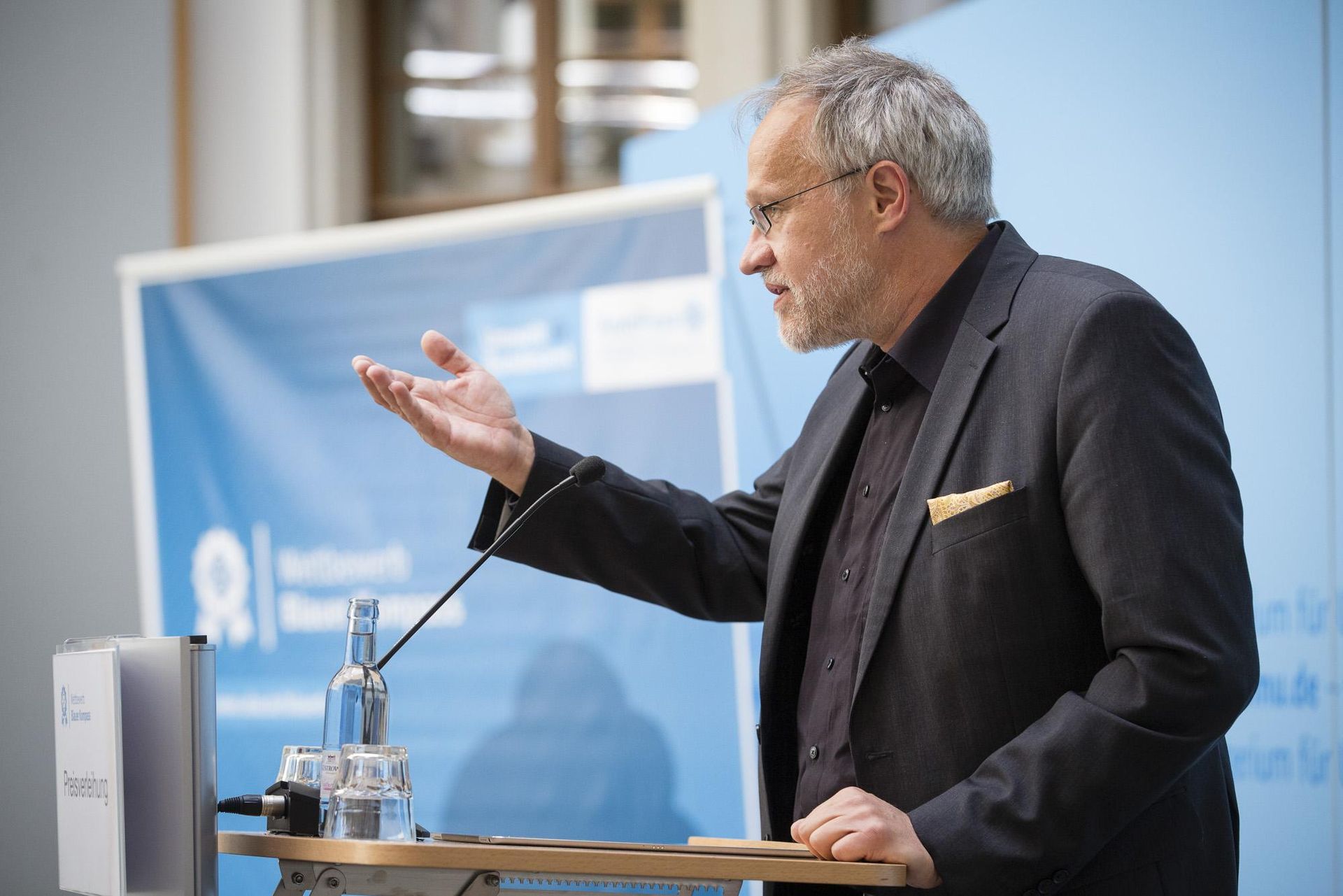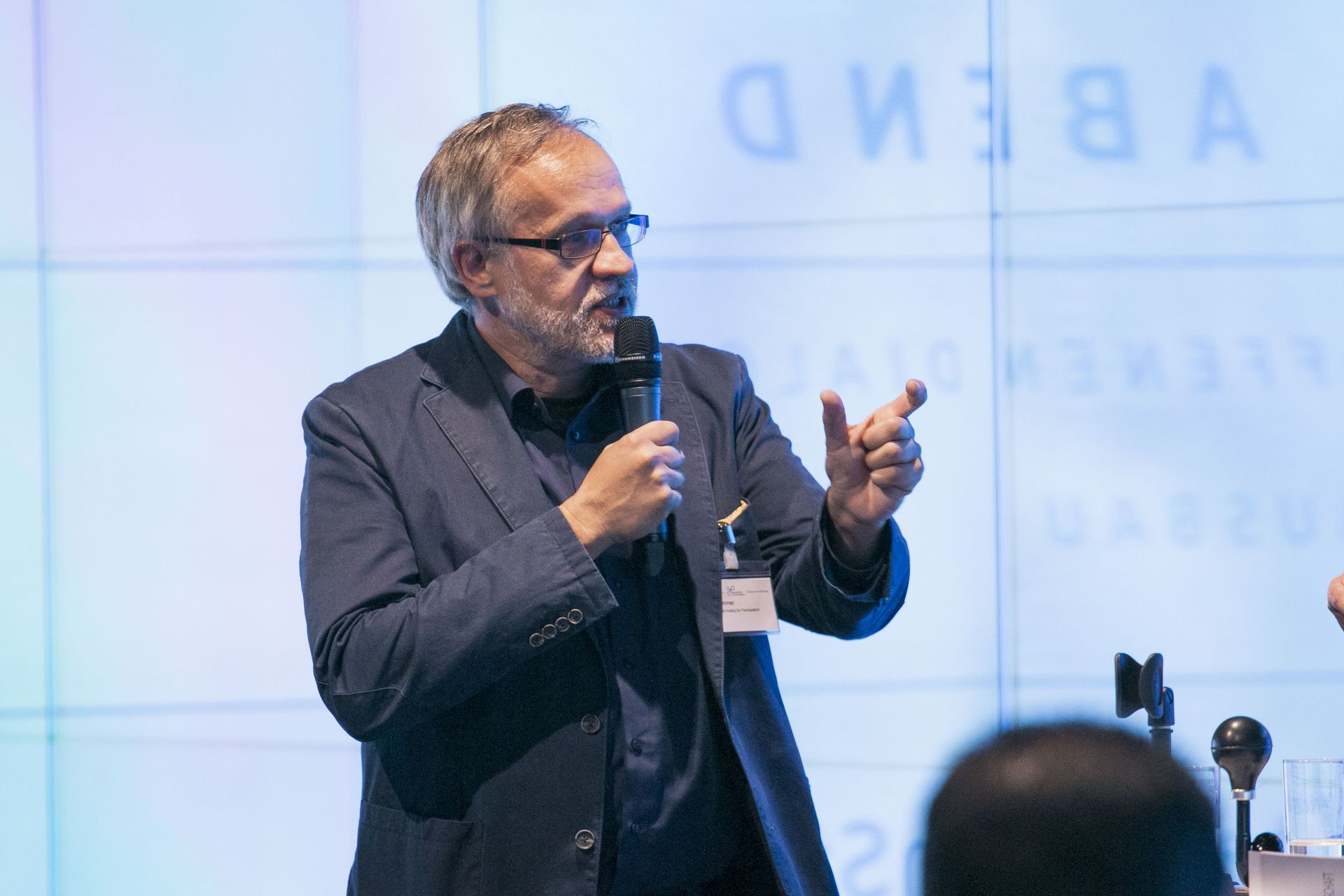Mr. Sommer, you’ve been the CEO of the German Environmental Foundation for over 30 years. Since August 2017 you’re also working at the Berlin Institute for Participation, where you’re the founding director. How did this institute originate?

The German Environmental Foundation is the oldest German civil foundation, and with its 3,500 founders it’s also the most extensive one. As its chairperson, I am basically working at the intersection of politics and civil matters. I was able to therefore observe firsthand how our representational democracy has suffered a consistent process of erosion in the past years. We are witnessing an increased refusal by citizens to participate in elections, on all political levels. A lack of political interest then leads to the rapid success of populist and (quasi-)radical parties, as well as to civilian protests that in some cases gain explosive energy. This leads to sharp conflicts and is a huge burden for our current political structures and actors.

Classic political concepts that are based on the idea that democratically elected political elites are capable of making important decisions for the general population and that they’ll receive support from the public are not working anymore. It’s my deep belief that we have to protect the achievements of a democratic society by continuing to develop our democratic structures and processes. Politics follows the same fundamental laws as the economy and nature do: there is no stasis. Only that which evolves has a future. Stagnation equals doom. If we want to make our democracy fit for the future, we must have it evolve. Europe’s citizens are more educated and informed than ever before, so they’re expecting a level of political participation that goes beyond the ballot. If our political structures fulfil these expectations, then there’s a future.

Two years ago I gave a longer interview on this subject, and the response was overwhelming and led to a larger discussion in which many figures in civil society, regular citizens, and political scientists participated. This gave us the idea to start a think tank for participation, which then led to the founding of the Berlin Institute for Participation in the summer of 2017. The whole process has been very transparently documented on the website of our institute: www.bipar.de.

The Institute for Participation is politically independent and works toward developing participation in a democratic society. What are the institute’s goals, and how can one become a member?

The institute works in an advocatory way, and its task is to analyse the insights gained from praxis and from research—including our own studies—so that determining figures in politics, the economy, and society can be assisted in realising new, complementary forms of democratic participation. Apart from directly democratic structures, this also includes forms of stakeholder- and citizen-participation, as well as a democratic orientation in our educational policies, where we hold the belief that democracy can’t be taught, it needs to be practiced. A large swath of our work is comprised of evaluating the methods, processes, and structures, since we believe that we can only generate more participation if we also offer a way to improve participation. At the end of the day it’s about ensuring that citizens experience self-efficacy. That strengthens people, and strengthens democracy. That’s we we’re inviting all those interested who work in the field, in politics, and in the economy to become an associated member of the Institute. Our own work method is obviously very participation-focused. All projects are accompanied and coordinated by voluntary work groups. Membership can be obtained online, and is free of contributions.

Many participation processes are increasingly taking place online through so-called “e-participation.” What are the benefits and drawbacks of this?
E-participation is a complex field. On the one hand, it does theoretically facilitate the immediate participation of wide swaths of the population, on the other hand it’s easy to manipulate (and it happens a lot). It’s also very complex and very selective. This means that usually only very young, educated, and engaged parts of the population participate—so exactly the demographic that’s already most likely to have significant political influence. E-participation also increases the temptation among political deciders to remove oneself from the discourse, to outsource the process to a service provider, and to simply get the results served. But participation culture doesn’t work like that. It lives from the direct dialogue between political deciders and those who will be affected. This isn’t always painless, but it’s necessary. So e-participation only makes sense when it’s integrated in a process that fulfils these demands.
You also are a consultant on issues of citizen participation in diverse European and international countries. How do you evaluate the international interest in the topic?
The interest is significant. A big part of my job is spent abroad. Recently a Chinese governmental delegation was in Berlin and they were very interested in learning more about Germany’s experience with modes of participation. Even politicians from Switzerland, which has a long history of direct democracy, are very interested in our German participation processes. Internationally, we tend to see the same challenges in almost all democratic societies.
Your institute deals with policy and management, the energy revolution, urban planning, and the question of how young people can be motivated to engage in elections. What example from the Institute’s first year of existence would you like to highlight?
Participation is a topic that’s as varied as the people and their issues. Therefore I won’t give one example, but instead point to an exciting initiative: since last summer, our Institute has been coordinating the relatively young “Alliance for Diverse Democracy.” Over 170 experts and representatives of communes, state governments, federal ministries, unions, universities, and parties work together in order to create new forms of participation, test them, and prepare them for use. The Alliance very clearly sees itself as a generator for more and more diverse democracies, especially in reaction to populist developments. The best answer to populism is participation.
In early 2019 your Institute presented the “Simulation European Parliament (SIMEP),” in which 400 students were able to play the role of EU parliamentarians in Berlin’s House of Representatives. What did you hope to achieve with this role-play?
Democratic pedagogy is a hotly discussed area, especially within the context of the previously mentioned populism. But as I said before, democracy can’t be taught like math or foreign languages. Democracy must be experienced, conflicts of interest must be understood, and solutions have to be found independently. Discussions have to be had, arguments weighed, success achieved, and defeats need to be lived with. Action-oriented role-playing is very effective for this. They allow participants to realise their self-sufficiency, but also show us adults that young people already possess a high level of democratic capacities. Hopefully, one day that will lead to more democracy in our educational institutes. At the end of the day, role-playing can’t substitute lived experiences. We need more democratic experience in all areas of life. That makes our democracy strong.
Together with your wife Gerit Kopietz you also have been writing children’s and young adult books for many years now. Currently over three million copies are in print. What do you like about that work?
My political work is often very complicated, usually frustrating, and almost always long-term. As an author, I can directly approach readers with topics that are important and create a world where they’re their own actors and find their own solutions—all while transmitting that in a lyrical way. Writing a book is a kind of escape, just like reading is. But it’s much more pleasurable. Writing for children and young adults is more difficult than writing for adults. If you’re at a reading with adults and have written something boring, they’ll still politely applaud you. If children aren’t engaged, they’re not afraid to show you. Children are simply mercilessly honest critics. And your own children are the most ruthless. My wife and I have four children, and they’ve picked apart quite a few of our manuscripts which therefore never made it.
What plans do you have for the future?
For this year, I’ve decided to do less. Less stress, less trips, less events. But I’m worried that these resolutions will probably not last. Our Institute is developing quite rapidly, and we are receiving various requests from Germany and abroad and are planning to establish a widely usable quality management system for good participation this year, as well as releasing various publications. When I hear myself say all this, I guess you could say I can forget about my resolutions.
INTERVIEW Markus Feller

